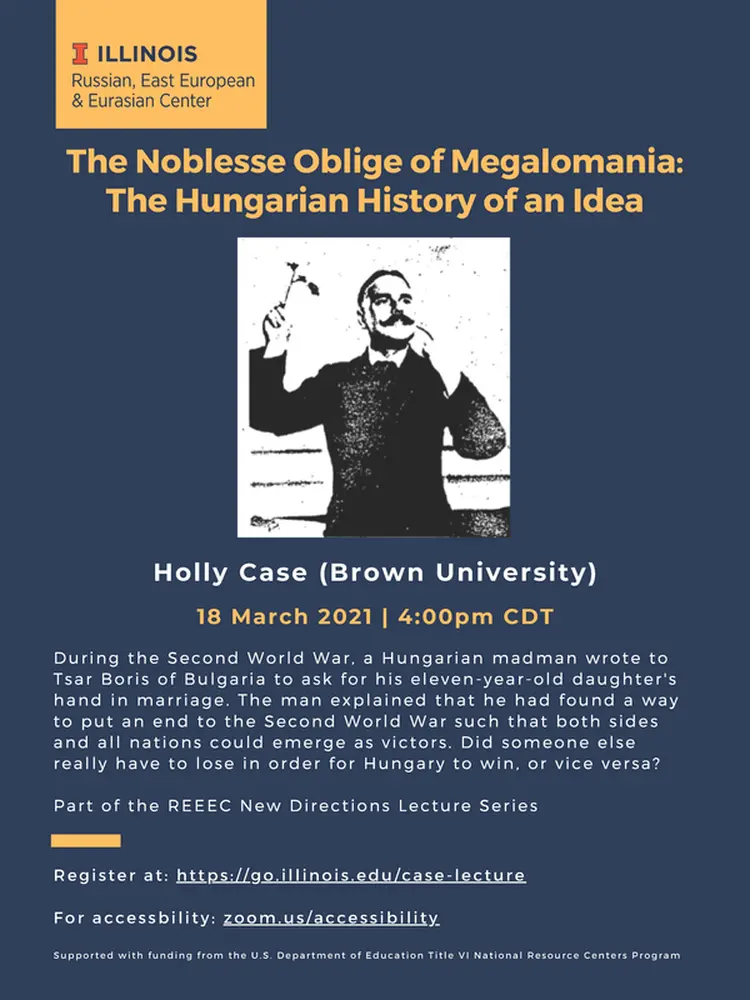
By Jamie Hendrickson (MA Student, REEES)
On March 18, 2021, as part of the REEEC New Directions Lecture series, Dr. Holly Case gave an online lecture entitled: “The Noblesse Oblige of Megalomania: The Hungarian History of an Idea.” Case, a Professor of History at Brown University, is a historian of modern Europe whose work focuses on the relationships between nineteenth and twentieth-century European foreign policy, social policy, culture, and foreign relations. She is also the author of both Between States: The Transylvanian Question and the European Idea during WWII and The Age of Questions: Or, A First Attempt at an Aggregate History of the Eastern, Social, Woman, American, Jewish, Polish, Bullion, Tuberculosis, and Many Other Questions over the Nineteenth Century, and Beyond.
At the heart of Case’s March 18 talk was a discussion and exploration of an experimental research project she is currently undertaking with a colleague in Budapest, Hungary that was inspired by a visit Case paid to an archive in Sofia, Bulgaria several years ago. That visit led her to discover a series of quite eccentric letters— with two in particular holding much interest, as they were written during the spring of 1944 by a middle-aged Hungarian man named Ladó László who was married at the time. These letters were addressed to both Princess Elizabeth of England, now Queen Elizabeth II (who was 18 years old at the time), and to Princess Marie Louise of Bulgaria (11 years old then) to ask for either lady’s hand in marriage. Why? László was convinced that he needed a virgin bride in order to be successful in his plans for Hungary’s great future as a powerful nation. Upon a first read, these letters seem quite nonsensical and reflective of the “megalomania” present in the title of Case’s talk, but she argues that they raise several questions that deserve further inspection like: Why were these letters written? Where did László’s ideas come from? What are the implications of both what he wrote and what was omitted—such as the lack of mentioning the Treaty of Trianon, antisemitism, or the territorial boundaries of Hungary?
It was letters such as these that contained notes of magnanimity, open-handedness, and generosity concerning the concept of Hungary’s nationhood that inspired Case to start considering whether the matter of national preoccupation is something that can be traced and studied throughout history. Related to that is whether there exists a national preoccupation that isn’t a national pathology, how a preoccupation can be national in nature, and what the idea of being national has to do with being Hungarian. Case is currently exploring all of these ideas in her research, and she closed her talk by inviting feedback and questions from the audience.
Jamie Hendrickson is a graduate student in Russian, East European, and Eurasian Studies at the University of Illinois Urbana-Champaign.